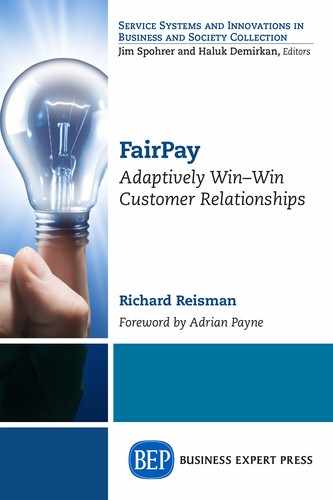FairPay has become my mission. I have always been a bit of a techno-utopian—but pragmatic and human-centered. From my first summer job at Bell Labs, my interest in information and communications technology has been focused on how it can make life better for people. That gained focus around 1970 from the work of Nelson, Engelbart, Licklider, and others on “man-machine symbiosis,” “augmenting human intellect,” and hypermedia. After a varied career at the leading edge of media technology, seeing many of the visions that drive me becoming commonplace (but many still elusive), I came to the vision of FairPay. From that perspective, I saw that the most fundamental crisis in media that I can hope to influence is not what it is (developing nicely for the most part), but how people buy it and sustain its production (badly stuck).
Our logic and business models for buying and selling digital content and services are broken. We see general directions for change, but no clear mechanisms for moving that from high-level “motherhood” and tacked-on ideals into nitty-gritty business processes that drive behavior. FairPay offers a process that is simple, and promises to be practical. This is not limited to digital, but points toward a more win–win economics across the board.
My focus has been on markets as an emergent process for optimizing value for people. FairPay is an architecture that itself embodies an emergent process of value-centered testing and adaptation. It applies proven principles in a new combination that will be shaped to specific business environments. It will continually evolve and improve in response to learning about (and shaping) customer behaviors.
This book is a call to action—to get more people to see the potential, and to help move FairPay from idea to commonplace reality.
A challenge in writing and reading this book is its dual focus: both the operational details of FairPay as structured to work in specific businesses, as well as the more conceptual aspects of how it enables a new economics. I sought to separate those two tracks. Portions can be skipped, but I hope most readers will find this dual vision adds understanding and motivation.
This book addresses a wide range of business issues in a variety of industries, plus a theoretical base spanning marketing, economics, psychology, and game theory. I am hardly an expert in those domains, and any errors are mine alone. My hope is that any errors are in fine points, and that domain experts will see the bigger picture and find it compelling.
Online Supplement—FPZLink—at FPZLink.com
An online supplement to this book provides more background and examples, links to references, as well as updates.
